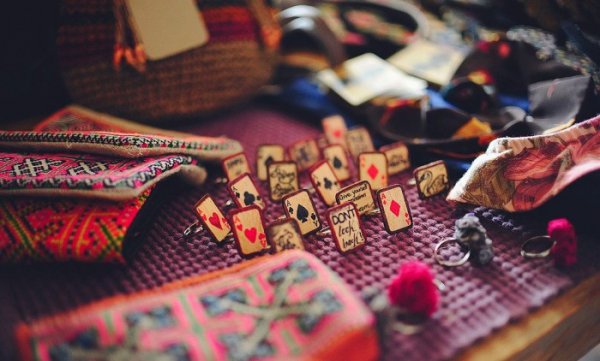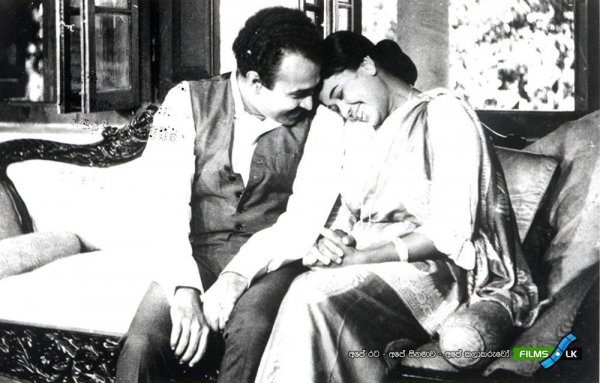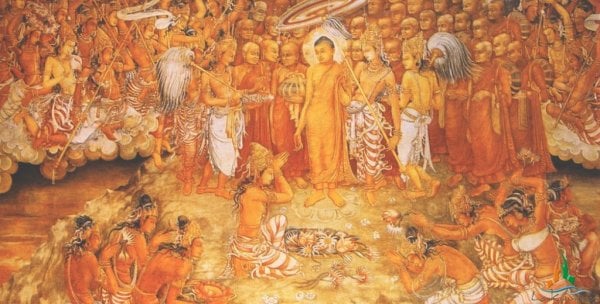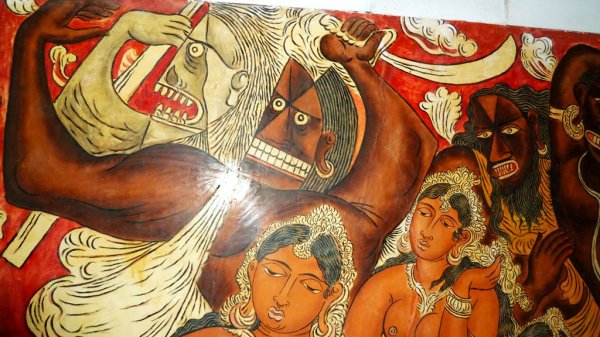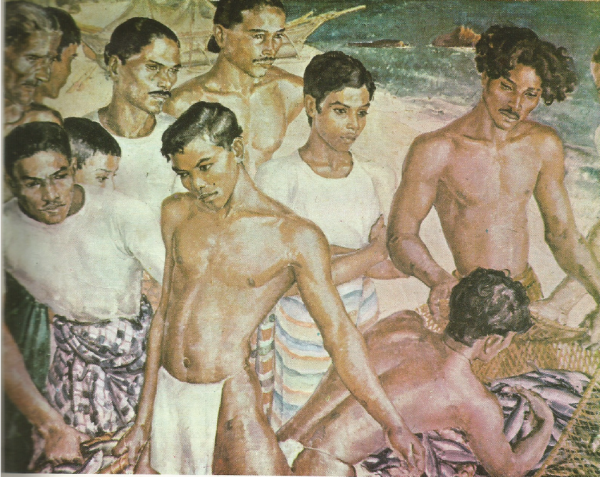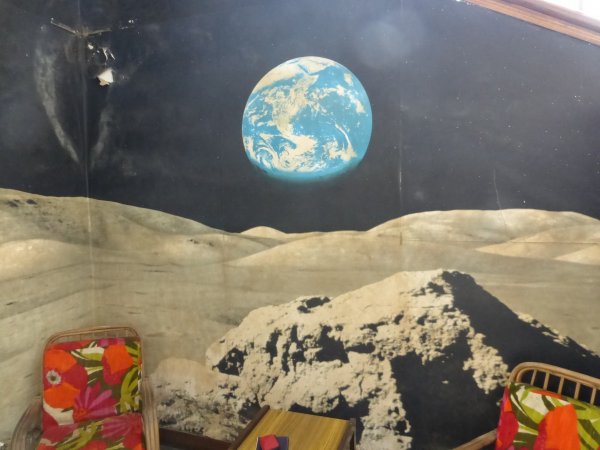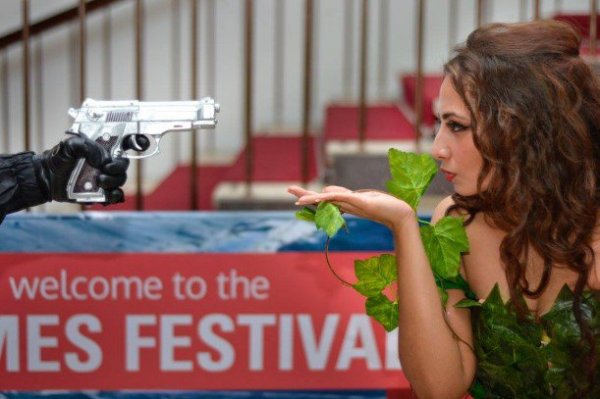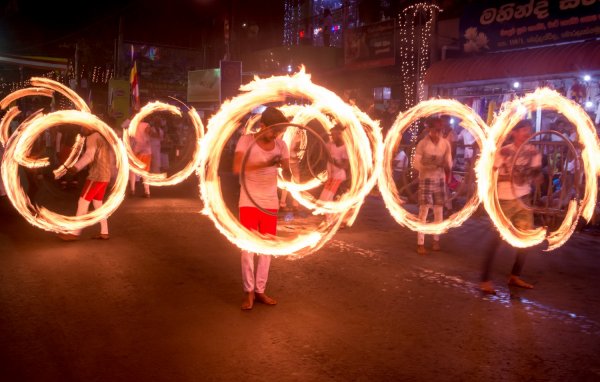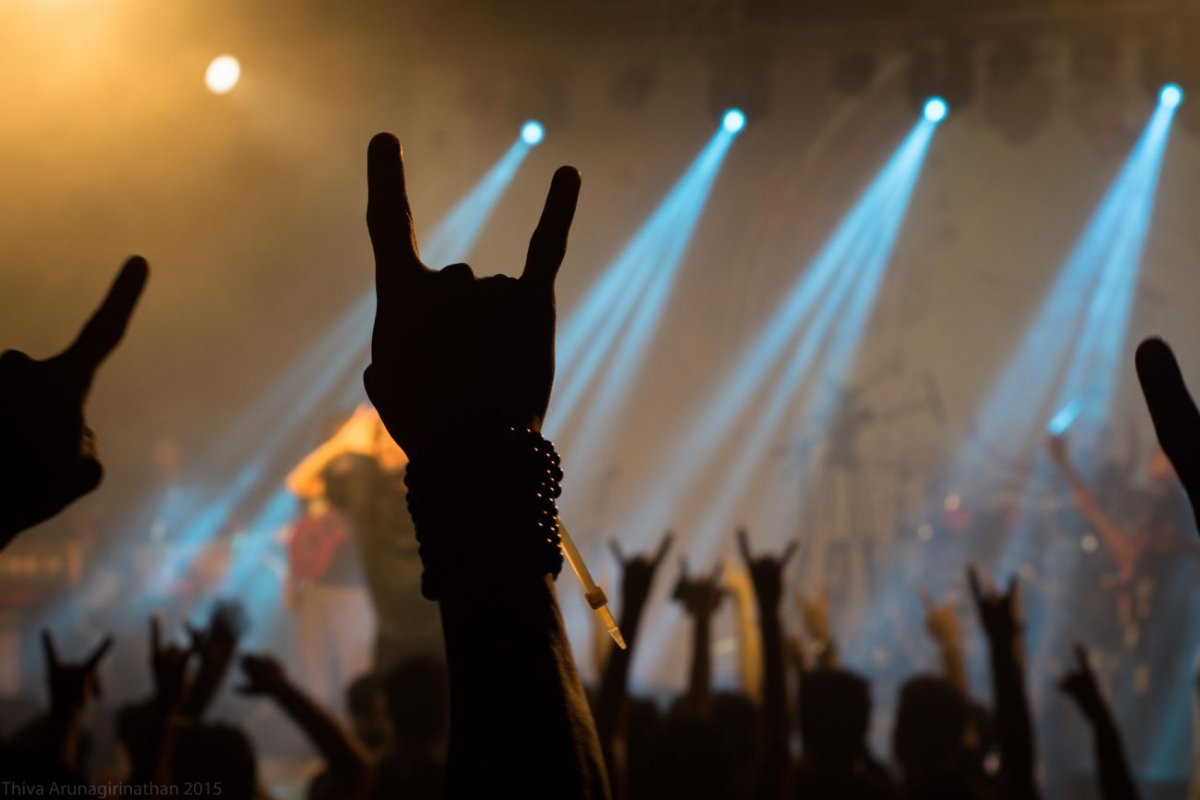
We may be a small country and we may be insignificant in the eyes of the international music community, but we do know a thing or two about music, thank you very much. While we don’t have audiences (or the money) to bring down as many artistes as we’d like, we do have a burgeoning music scene with representation from as many genres as you please, more than making up for the lack of international concerts. Our focus this time: the loud, electric heavy metal community, which has a niche but steadily growing following.
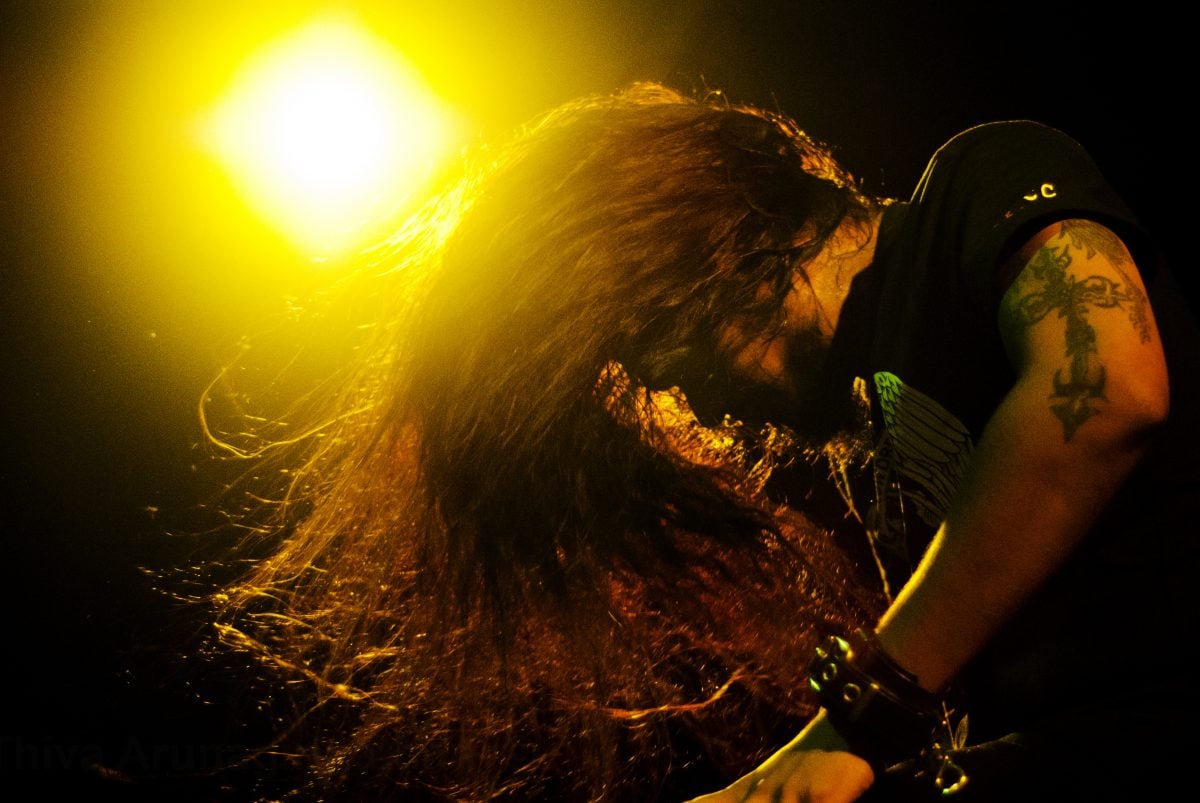
Suresh de Silva of Stigmata headbangs at the Hollow Dreams 10th year anniversary gig. “I think the future of Sri Lankan heavy metal and rock and roll is really good because there are more pros than there are cons, and I think there are a lot of talented artists right now, who focus on originality, innovation, honesty, and conviction. All the Rock n Roll and heavy metal bands in Sri Lanka, they play in studios, they play live, they do not lip sync nor do they use convenient contemporary modern technological advancements to further their agendas of being a band. I think if you’re gonna charge tickets, you’re gonna have to give them something they’ve never experienced before.”
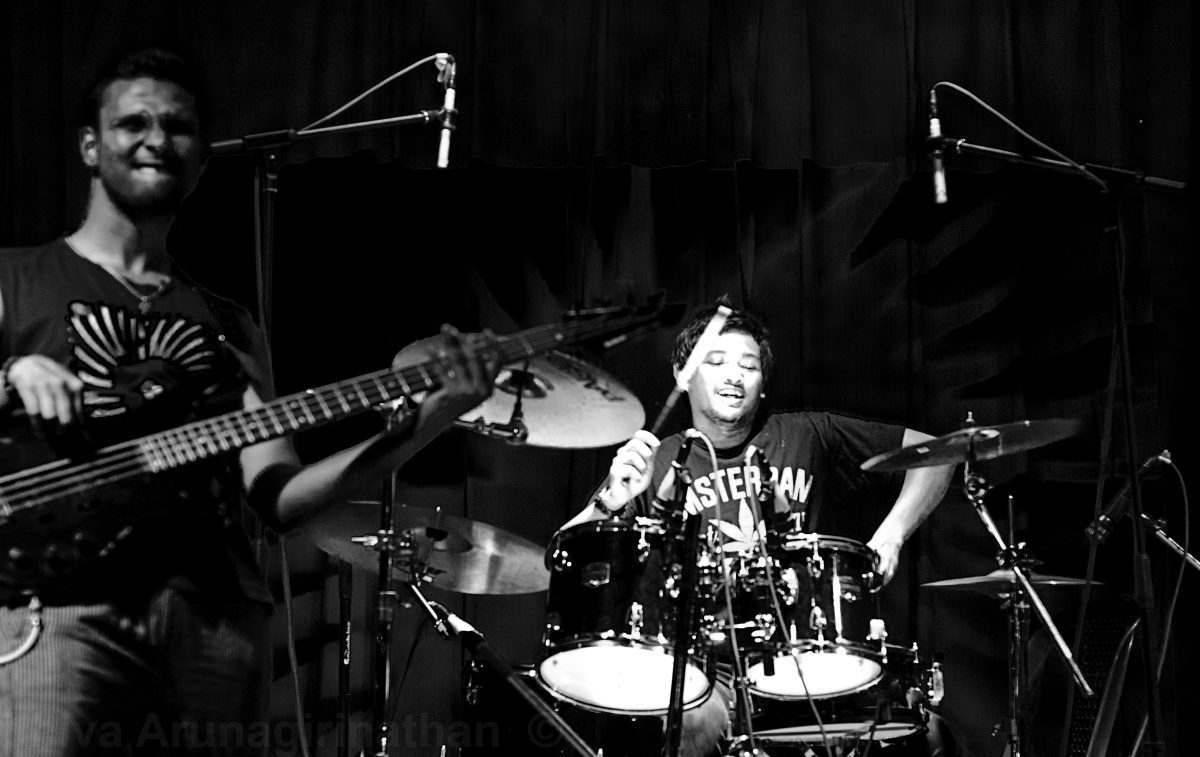
Naushan Abbas performs at Mosh Scream Rock. Abbas is drummer for The Herb & The Remedy, organiser of Mosh Scream Rock and Rock n Roll, and owner of Sulphur Sounds, who provide sound equipment to many live music events in Colombo.
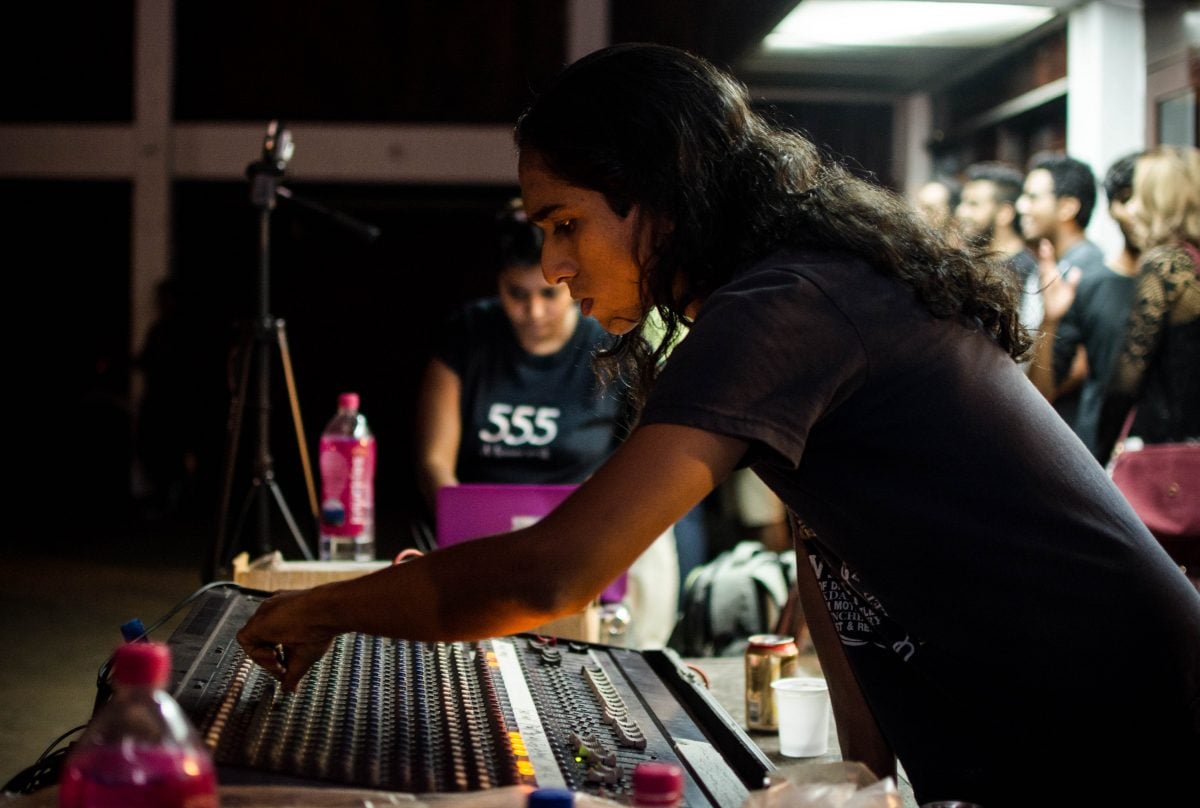
At Mosh Scream Rock X (Tribute to Venna) last month: Mirshad Buckman performs sound checks on the mixer before the show starts. He is the frontman of Paranoid Earthling and owner of Buckman Audio.
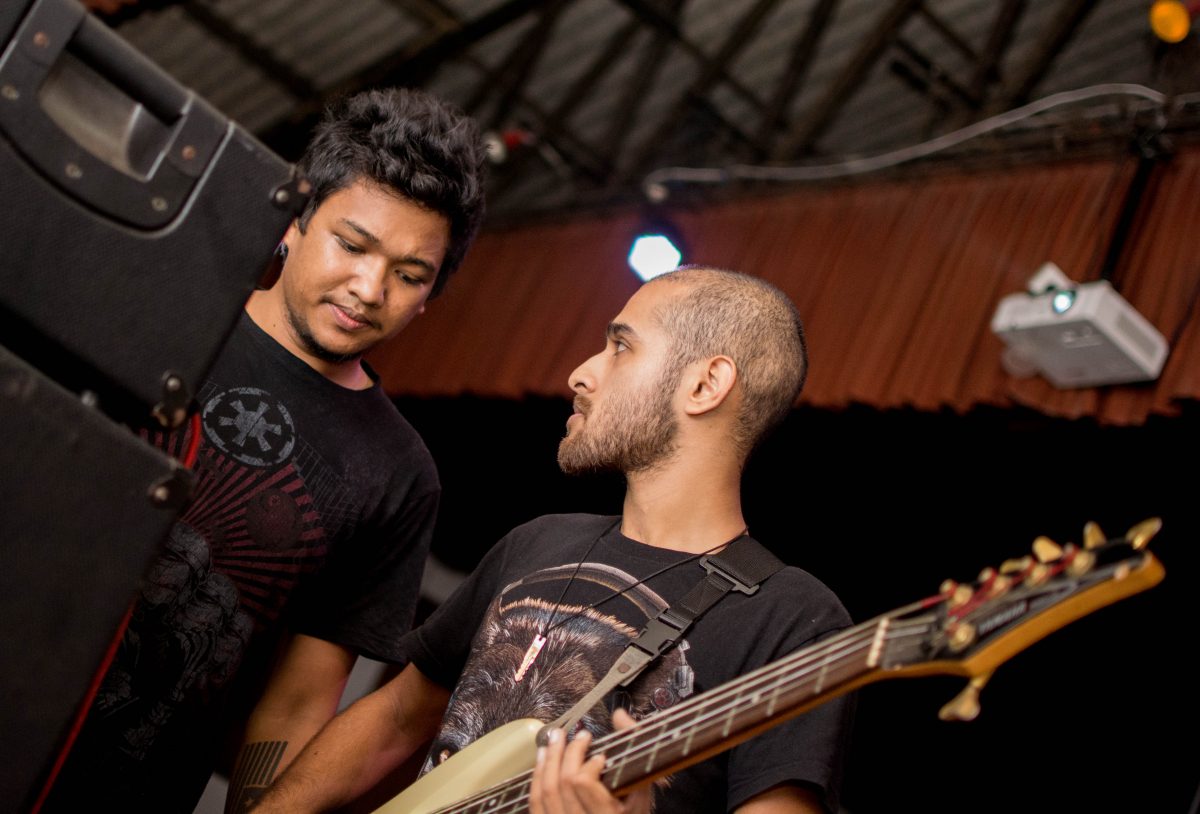
Naushan and Daniel Cleassen (bassist of the band Durga) during sound check.
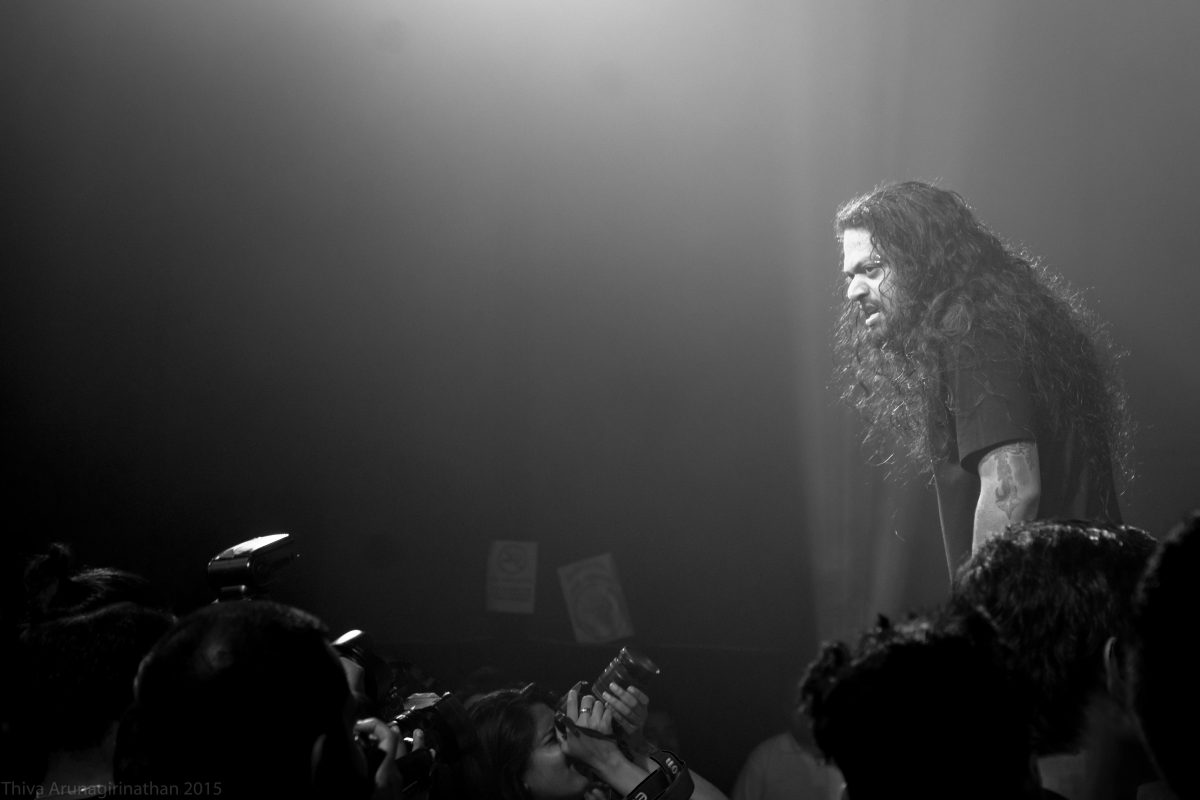
“I think we were the first international heavy metal band to play in Maldives at the Rock Storm Festival. We played for close to around 3,000-4,000 people. We played alongside Serenity Dies (that’s one of the best thrash metal bands in the world and Fuzzy, who’s one of the best guitarists in the world). We performed in Malaysia, we played at a 3 day festival called the “Southern Underground Explosion”, we played at Melbourne at the Melbourne Arts Festival where we performed for a full house. We played in Dubai, New Zealand, India (25,000 people at Central Park in Delhi), and at the Army Stadium in Dhaka, Bangladesh, for 35,000 people.” – Suresh of Stigmata.
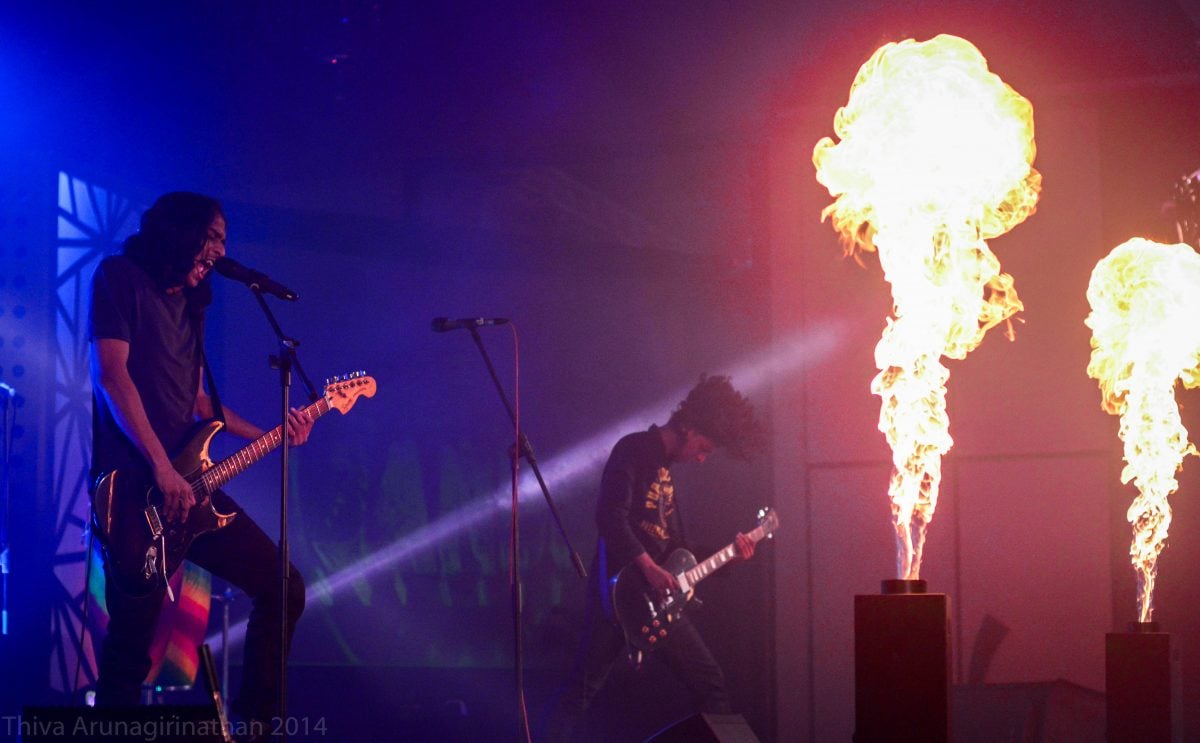
Paranoid Earthling makes a guest performance at “The Battle of the Bands” held in 2015. “The crowd has got bigger now. Bigger and scattered, it’s all over the place.What I feel is that rock music has also moved towards the Sinhala music listening population, which is actually a very good thing. When we started out it was only a handful of guys. The quality of the music is better now, and it’s independent. Any genre gets too big and people start making money out of it. In the early 2000s there was a rise in rock music, we used to come from Kandy every week and play two shows a week. Then there was Hip Hop and EDM. It’s been a really hard road for us, but it’s been fun.” – Mirshad Buckman.
![Danushka Samarasinghe, rhythm guitarist of Paranoid Earthling: “We’ve toured in India and Afghanistan. When we went to Afghanistan in 2012, I got the same feeling I got when we started out in 2002; back then it was a small unit of kids starting out, picking up instruments and learning. India, of course, is way ahead of us. The industry is much bigger, so there are more gigs, more concerts, more bands. Once we were playing on a Tuesday night at Turquoise Cottage [in Delhi] and Motherjane was playing only four blocks away.”](http://roar.media/english/life/wp-content/uploads/2016/11/10-e1479220612373.jpg)
Danushka Samarasinghe, rhythm guitarist of Paranoid Earthling: “We’ve toured in India and Afghanistan. When we went to Afghanistan in 2012, I got the same feeling I got when we started out in 2002; back then it was a small unit of kids starting out, picking up instruments and learning. India, of course, is way ahead of us. The industry is much bigger, so there are more gigs, more concerts, more bands. Once we were playing on a Tuesday night at Turquoise Cottage [in Delhi] and Motherjane was playing only four blocks away.”
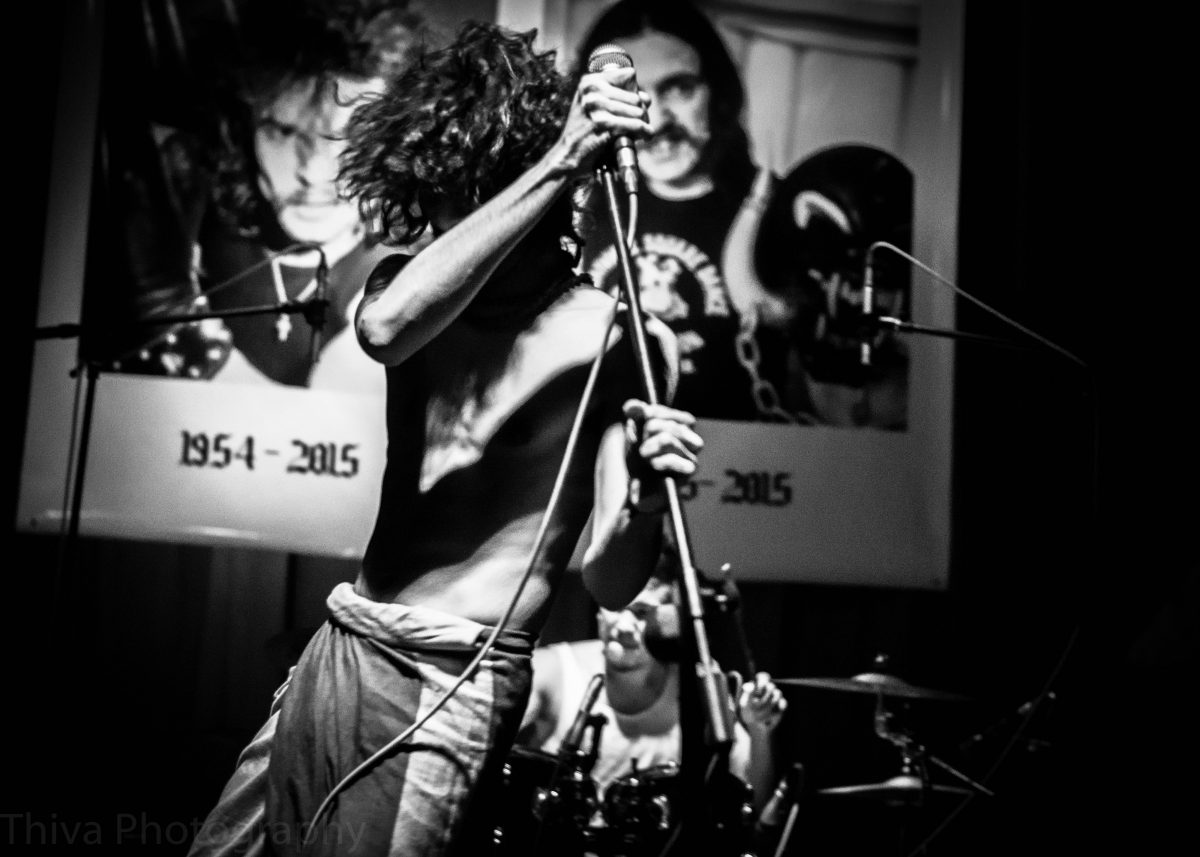
Thushara Kulatunga, frontman of Sakwala Chakraya, who call themselves a “post-colonial trance punk” band.
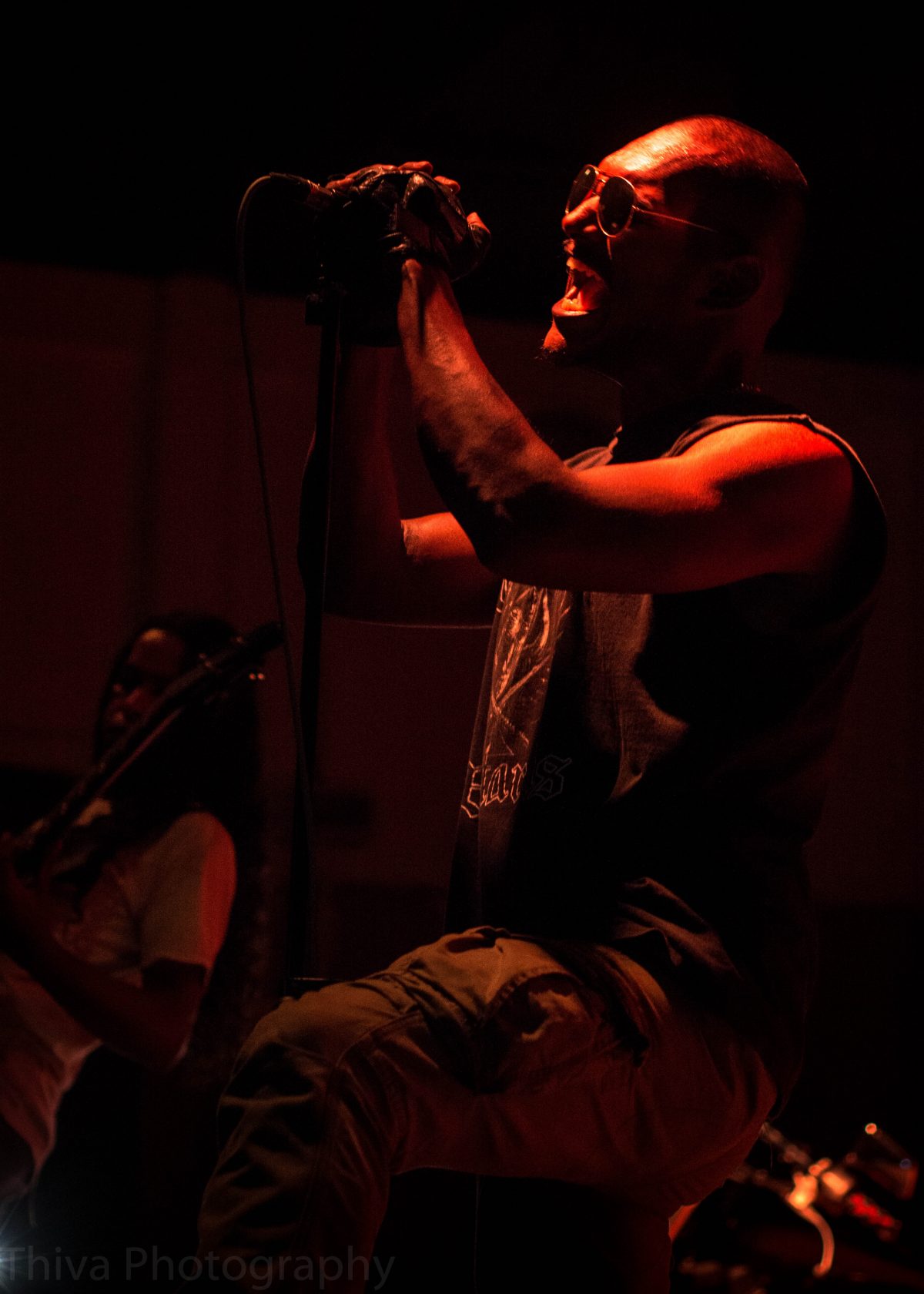
Chathuranga Fonseka, frontman of Funeral In Heaven: “Ultimately, black metal will forever be an outsider’s preference. It (especially the sound) always has demanded an acquired taste. Even if it is being accepted by common society (like how the Norwegian government suddenly recognised the potential of the highest cultural export in its own country, which was black metal in the 90s, they started promoting it along with the media and eventually went to the masses and became something “normal”), someone will find a way to up the ante, push the boundaries a little further and create a niche within the already existing niche, because one thing we humans will not run out of is new ideas.”
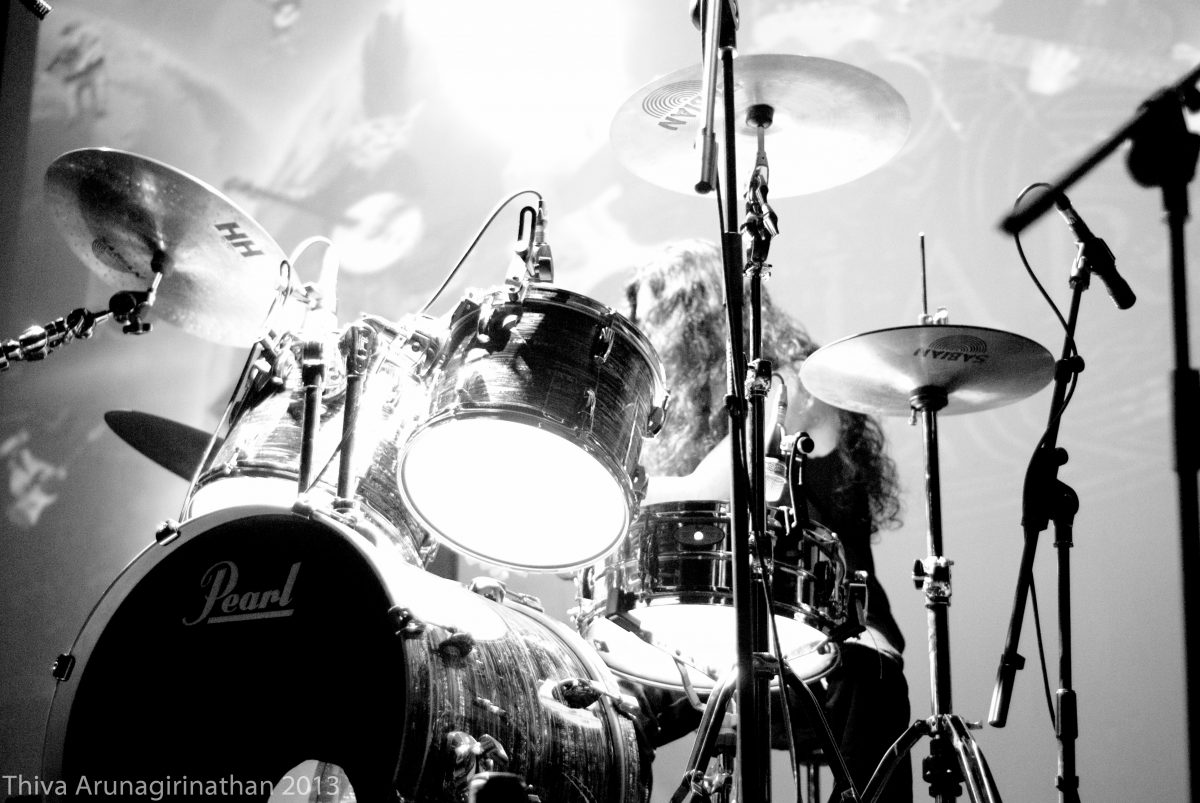
Kasun Nawarathne of Genocide Shrines on drums.
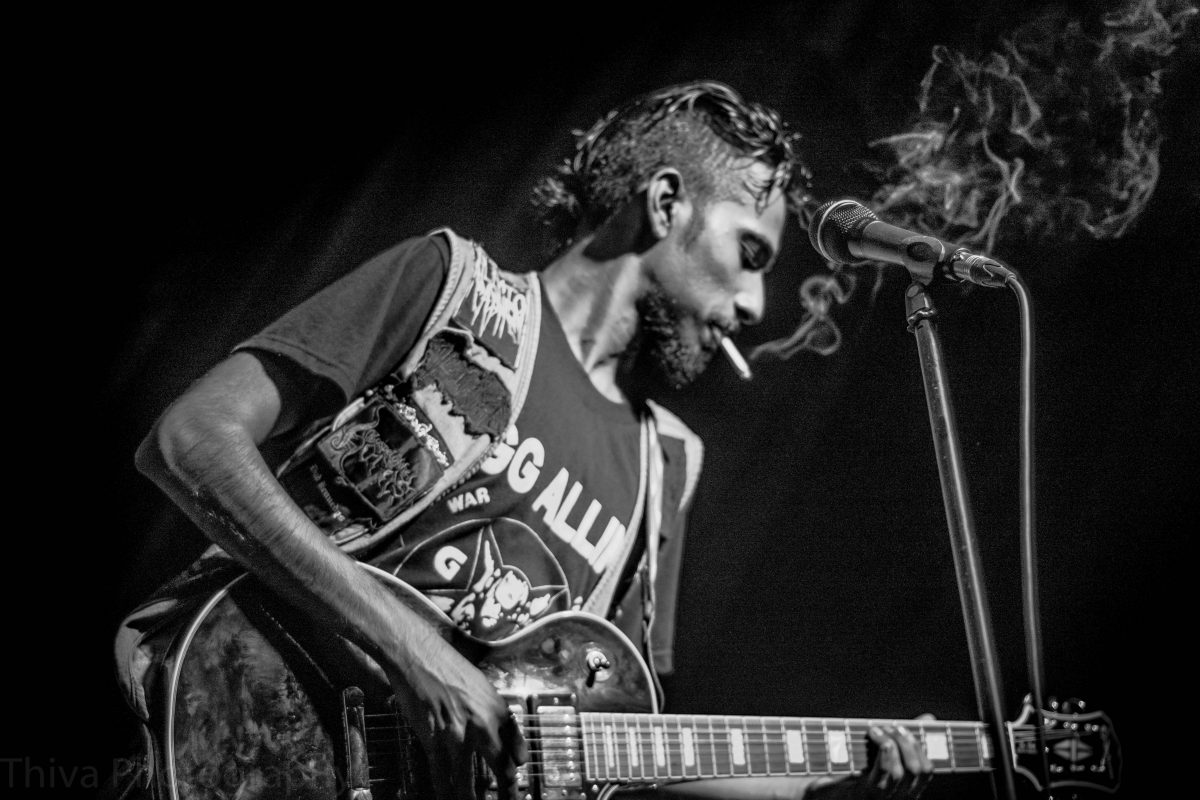
Kasun also plays guitar for Manifestator. “Black metal, machang, it was born out of certain experimentations when it came to, let’s say, extreme ends of music. You cannot pinpoint origins, but you can point to certain people who made a contribution to the sound of black metal, or what the concept of black metal is, if we are taking a sort of old school point of view, raw production… it was a rebellion against what was popular at the time, that was how it was born.”
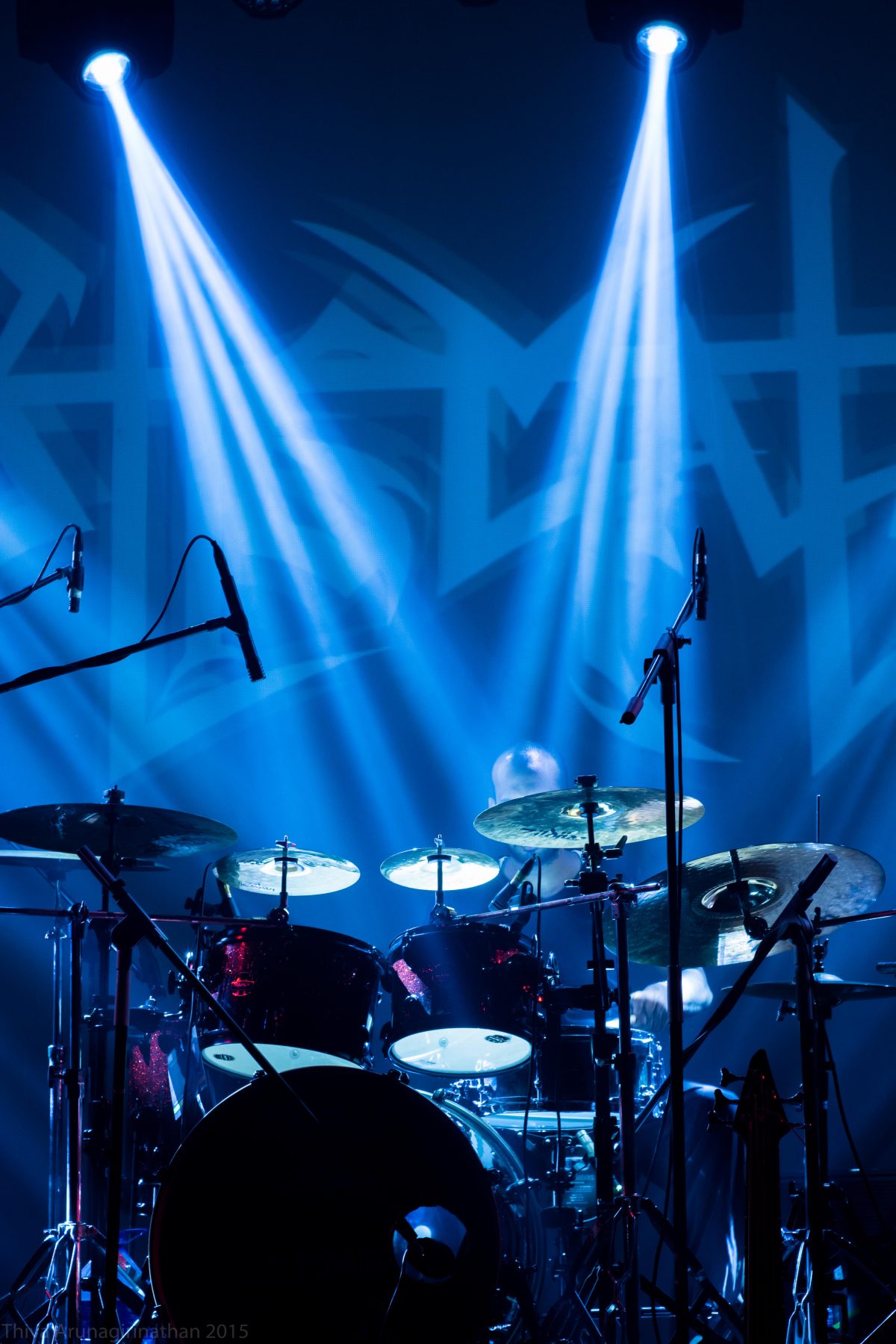
Tharaka, drummer for Stigmata: “The early stages of Stigmata was rough for us because there was no infrastructure or platform and I think we were the first in terms of originality. The past was really hard, man; there was no place to rehearse, there was no place to hire proper sounds, there was no place to garner the support that a budding heavy metal band needed. We are really a self-taught band, but we owe a lot of credit to Independence Square (Dinesh, Emmanuel, Ajith, OP and Shehan Karunathilake) who advised us and consulted us. The person we have to thank the most is Shobi Perera who worked on Hollow Dreams in engineering it and producing it, and he engineered Silent Chaos Serpentine as well. He’s an amazing musician overall. He was one guy who taught us to keep believing in what we do, to not deviate from the path.”
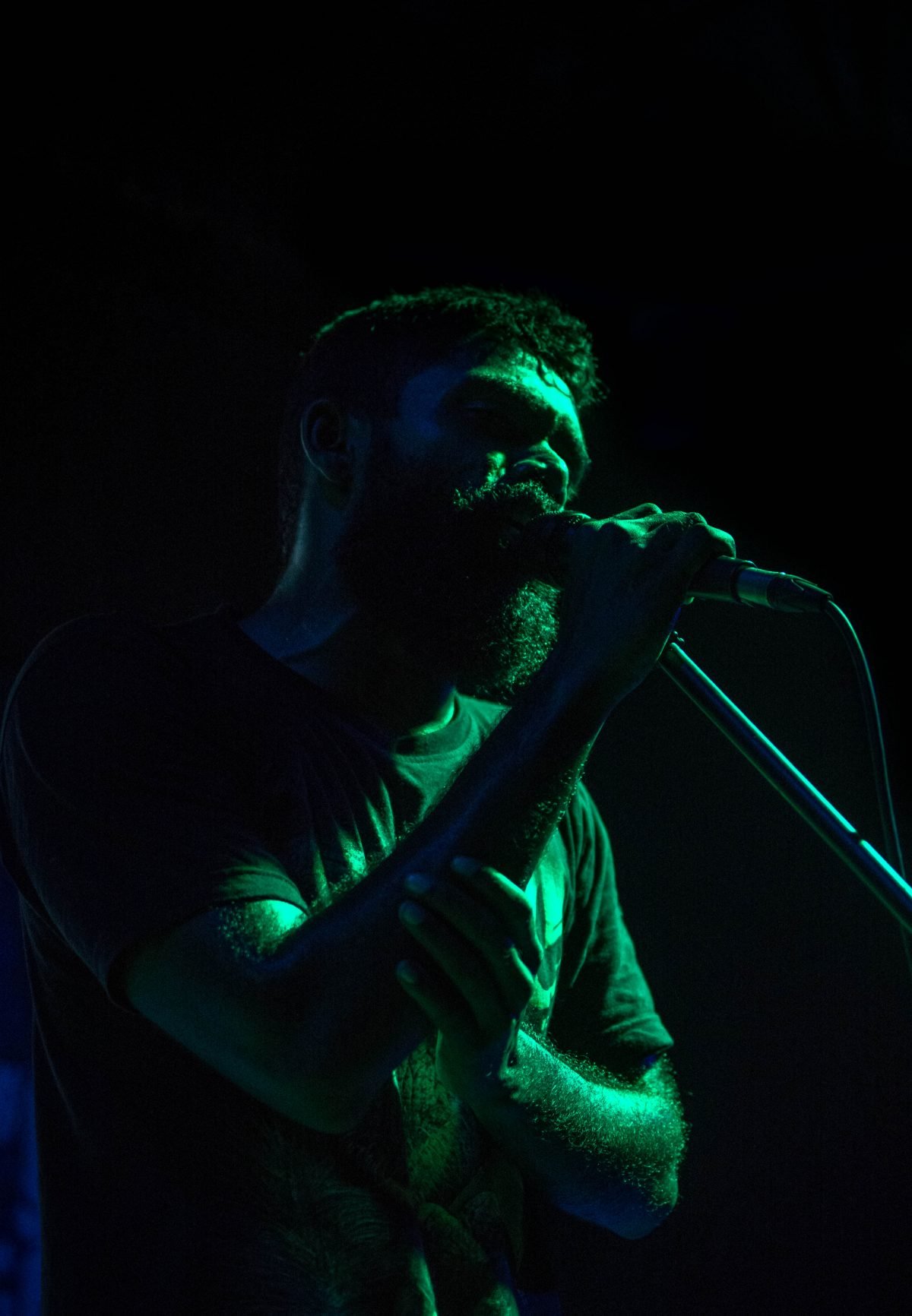
Wele, Durga’s frontman. Durga is about to release their first EP. “We formed Durga in 2014. We play a unique mix of stoner rock and grunge. We practice twice a week. This is the most challenging part of being in a band, because Sahan lives in Kalutara and Danny has work in the night. So on a Saturday, we’d have to start after Danny is done with work. This is usually after 10 p.m. We’d go on for about 3-4 hours. We set aside budgets in the beginning of the month. That is when we have money. This way, we don’t run out of cash for practices even when we’re broke.”
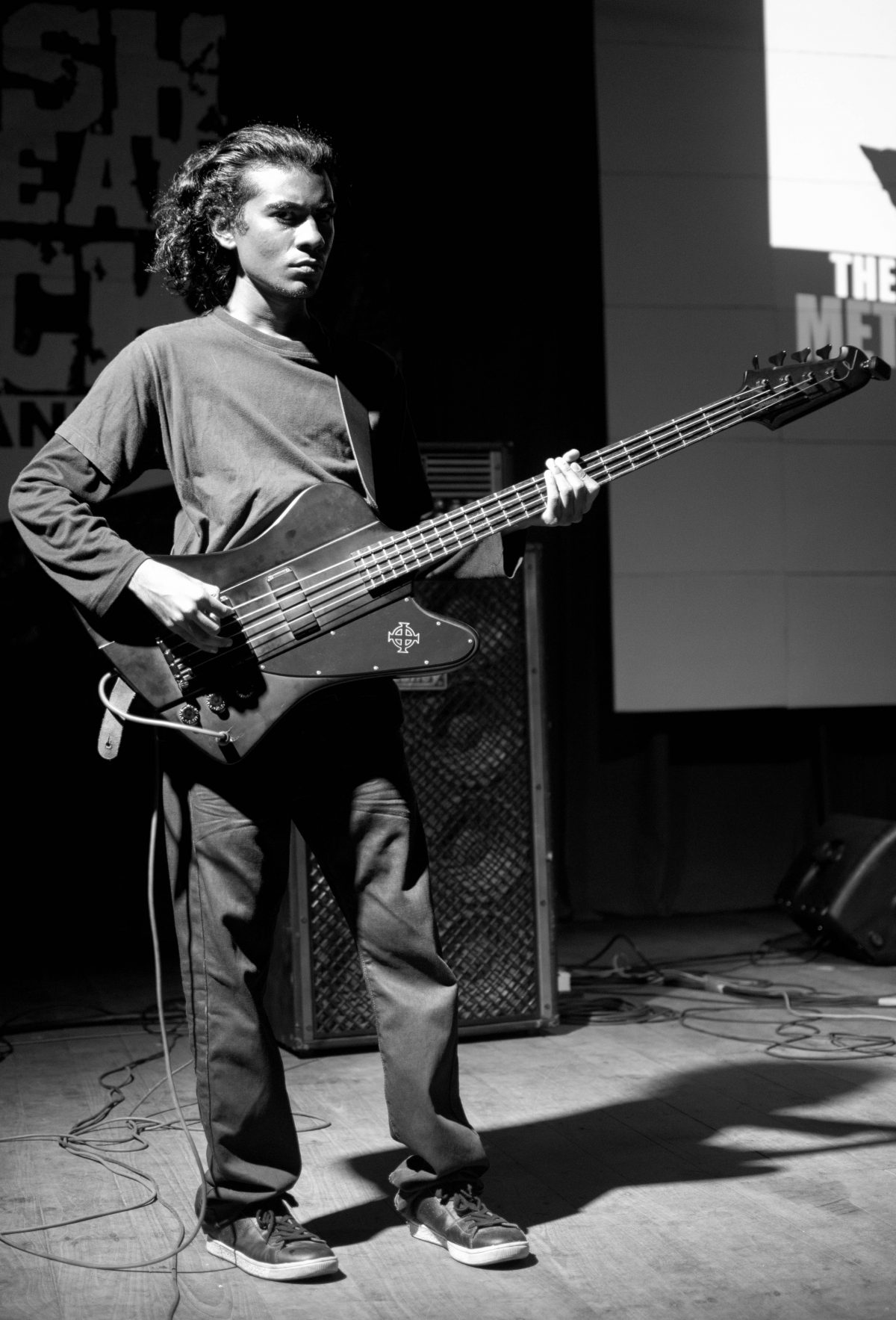
Virjan Marcellin, of Ancient Curse from Kandy, one of the young and upcoming bands in the country. “We wouldn’t be here if it weren’t for Paranoid Earthling and Forsaken. Their riffs and lyrics inspired us to write music on our own. Paranoid Earthling’s music was based on political economic and socio-cultural issues surrounding the day-to-day life of an average Sri Lankan youth. That influenced us big time. Forsaken questioned concepts such as democracy, violence, conflict, religion and social hierarchies. And their music called for social change and transformation.”
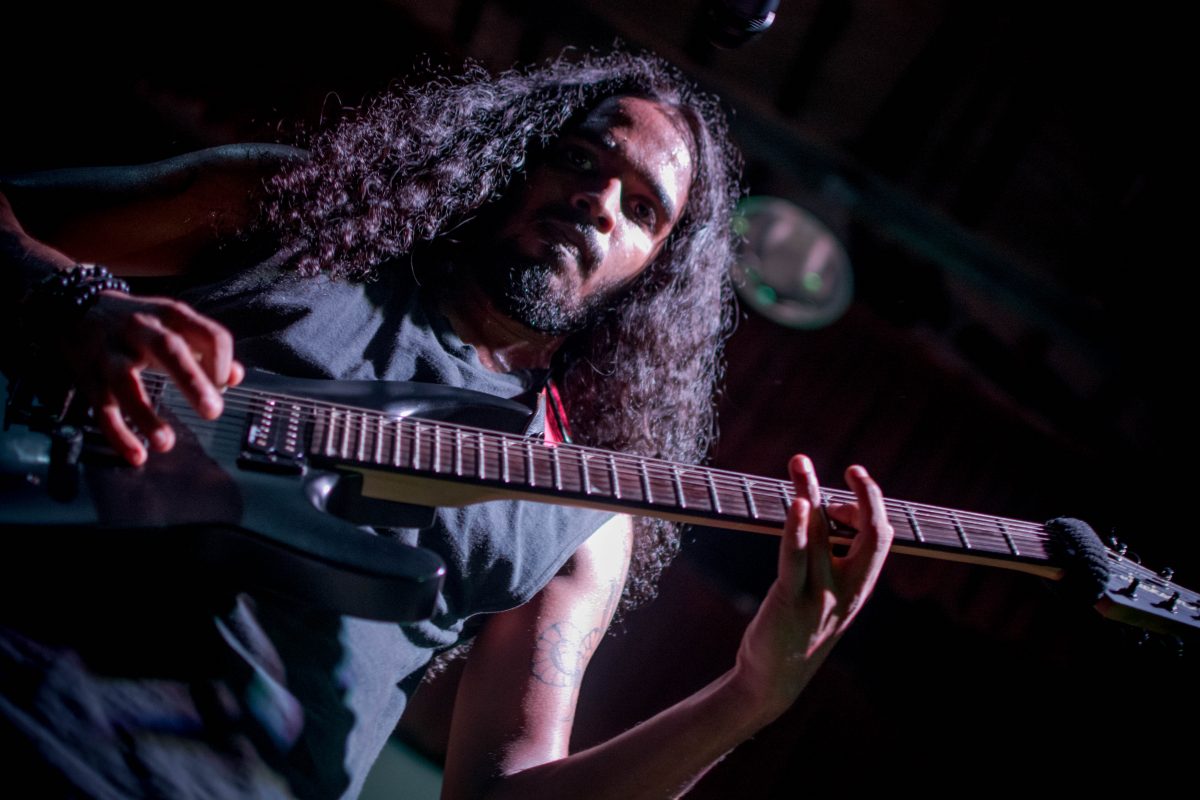
Shane Senevirathne of Ancient Curse. “There isn’t a proper rehearsal studio in Kandy; we had Mercurial and it was shut down. Currently we’re planning on having a gig in January, to bring back all the Kandyan bands under one roof.”
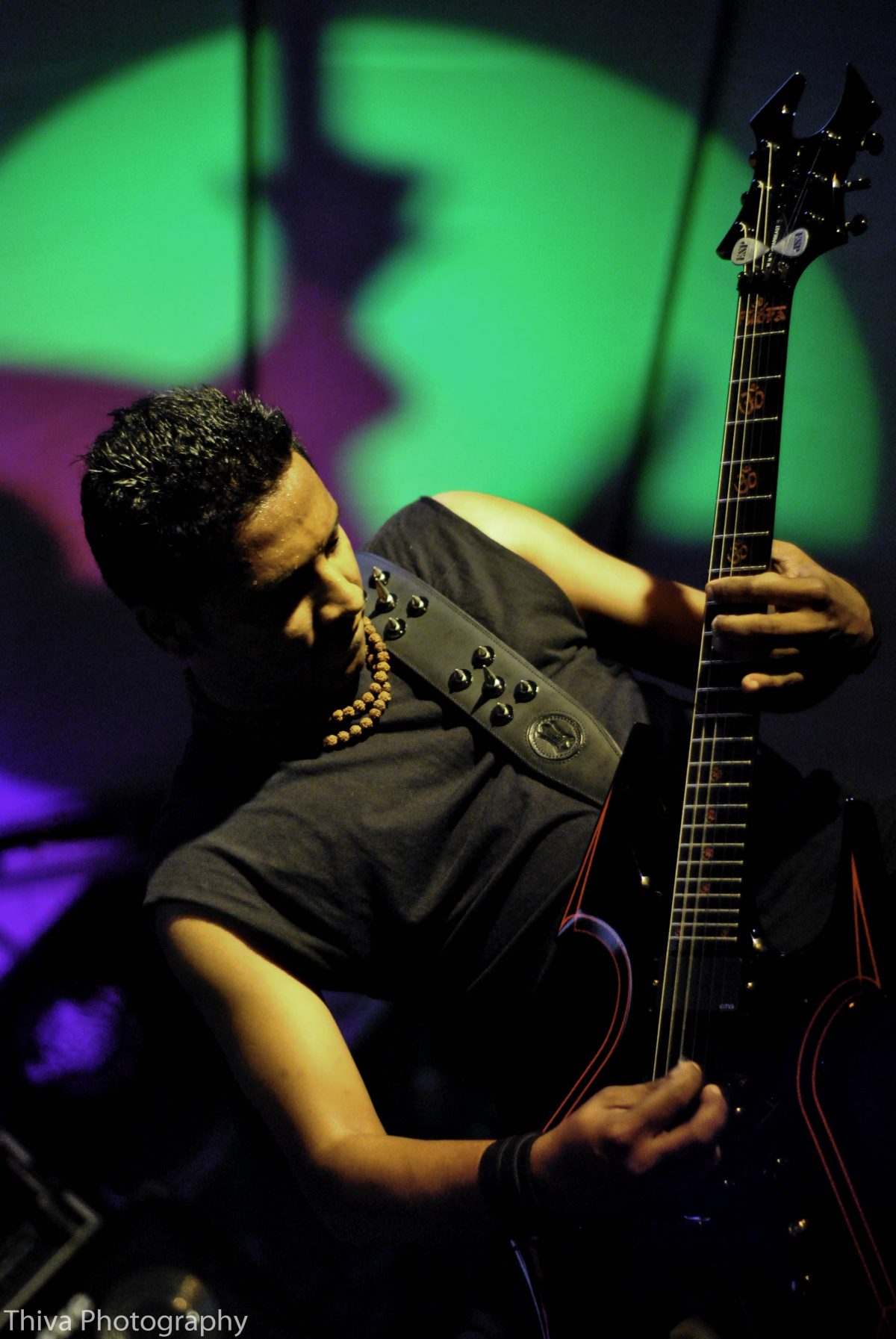
Rudra, a “Vedic Death Metal” band hailing from Singapore, performs at the Colombo Open Air Festival held in 2011 at CR & FC. They returned to the stage in Colombo this month to play at Maelstrom Festival 2016.
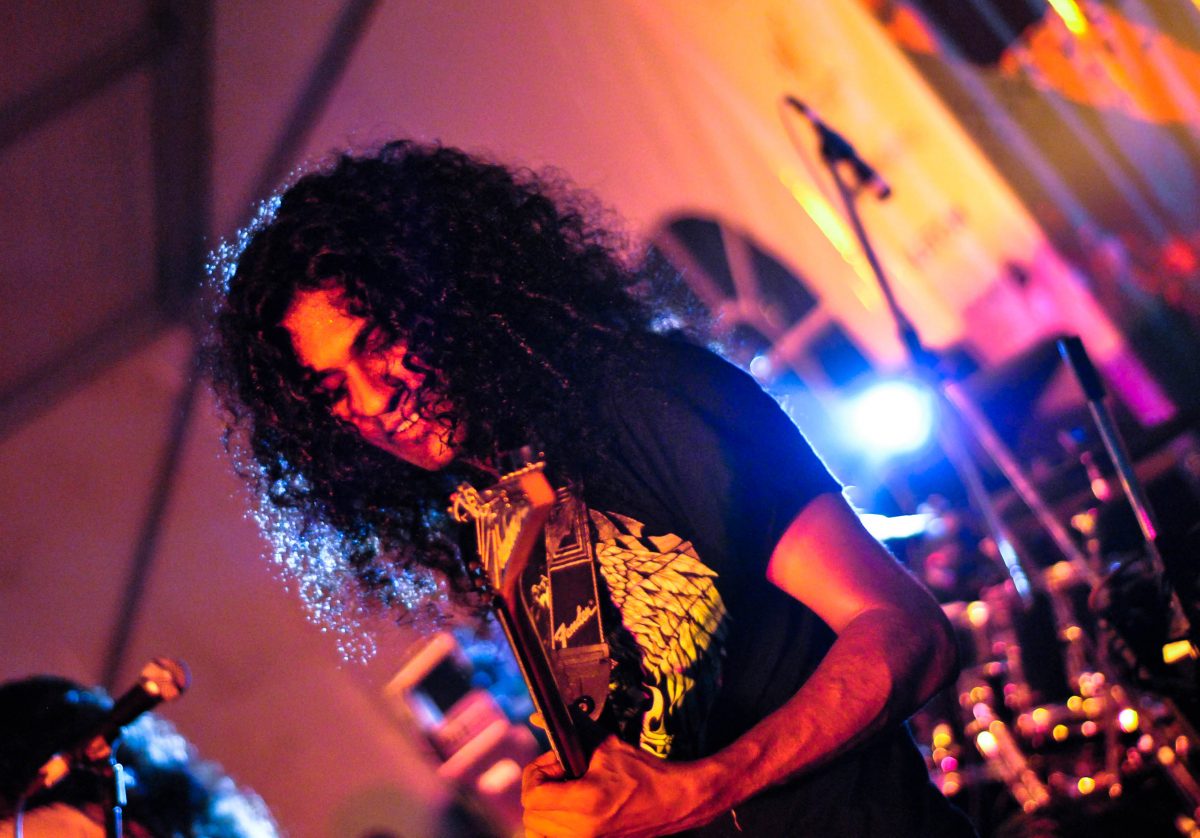
Andrew, lead guitarist of Stigmata, the only Sri Lankan heavy metal band to have been featured on the Discovery Channel and BBC.
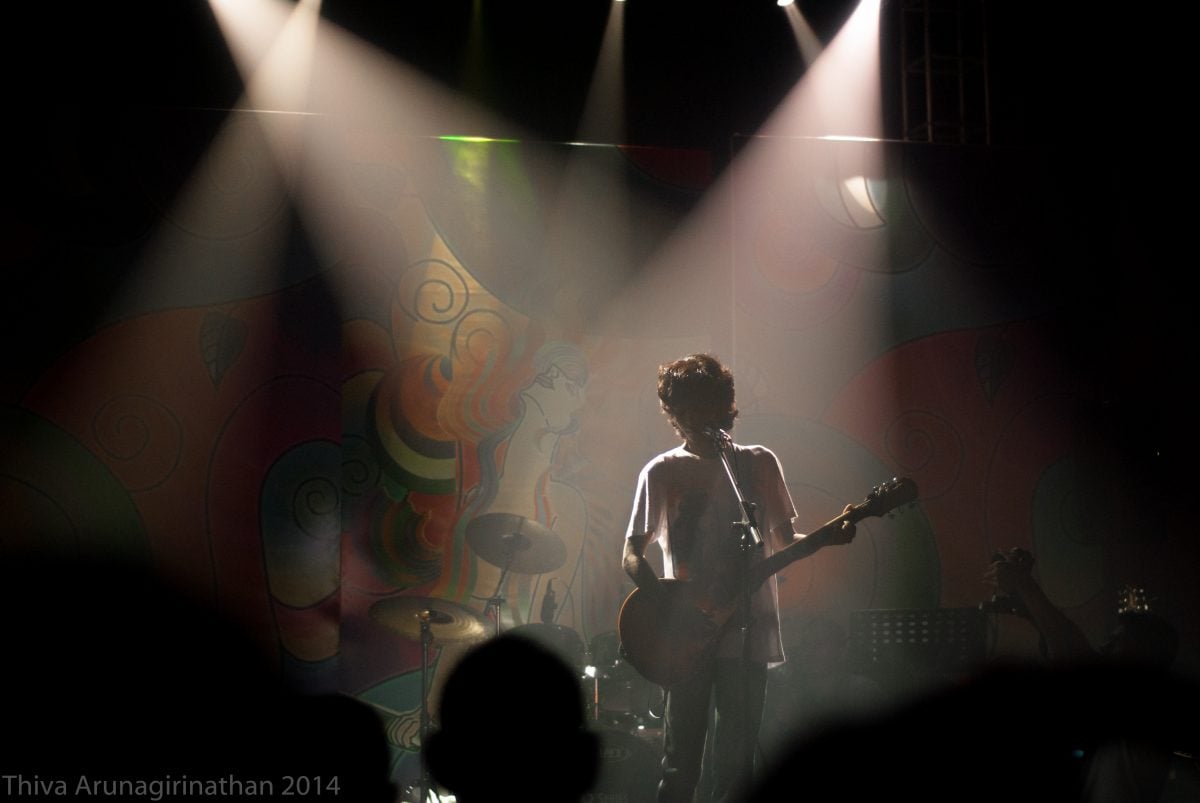
Buddhi De Mel from Wagon Park. currently pursuing music in Los Angeles, California. “We play Rock ‘N’ Roll with a smack of the blues. Why did we form the band? Passion.” Buddhi’s final message to his fellow artistes: “Keep doing what you do, because it’s a good scene that we have and good things will come our way.”
